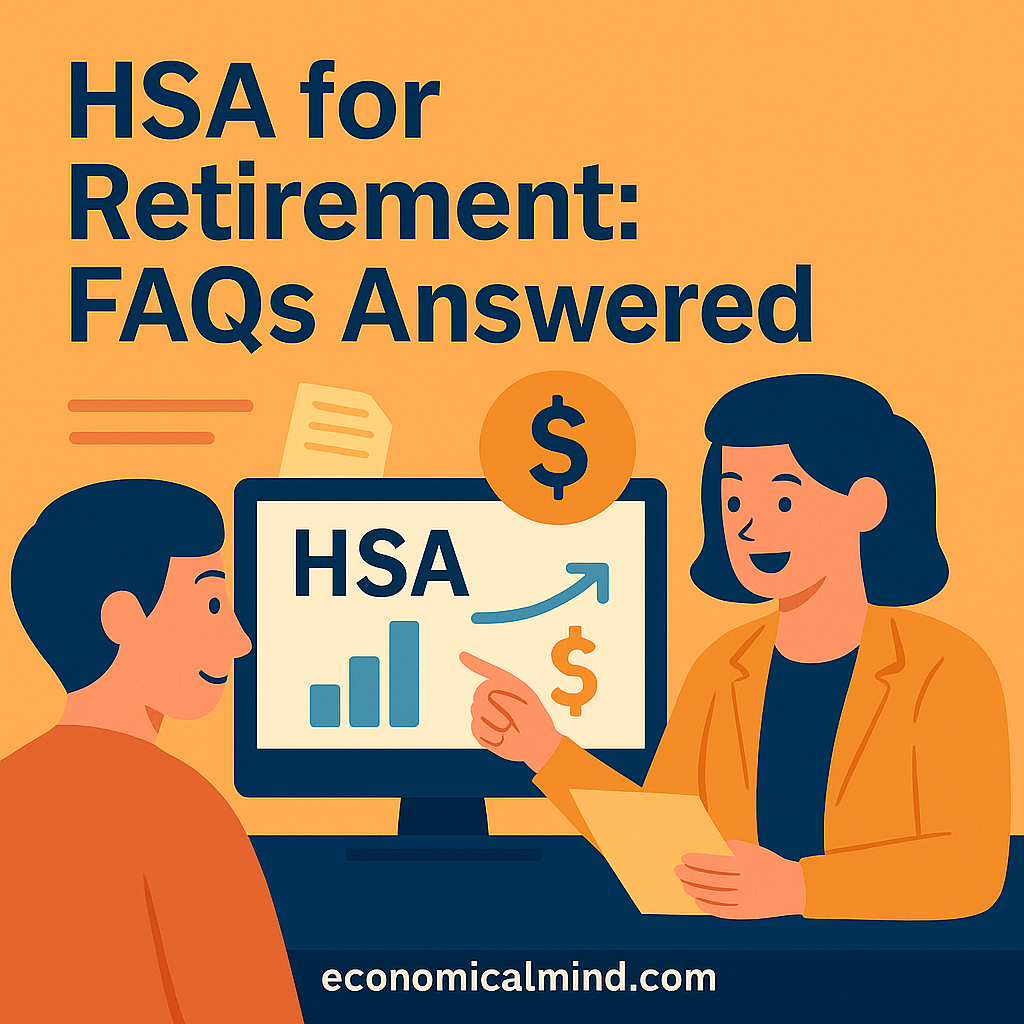
A Health Savings Account (HSA) isn’t just for covering medical costs—it can also be a powerful tool for building long-term wealth. While most people use HSAs for healthcare expenses, savvy savers are discovering how they double as a stealth retirement account with unique tax advantages.
In this FAQ, we’ll unpack how HSAs work, their retirement benefits, and how to maximize their potential.
What Is a Health Savings Account (HSA)?
An HSA is a tax-advantaged savings account that lets you set aside money for qualified medical expenses. It’s available to people with high-deductible health plans (HDHPs).
The biggest perk? It’s triple tax-advantaged:
- Contributions are tax-deductible
- Growth is tax-free
- Withdrawals for medical expenses are tax-free
How Does an HSA Work for Retirement?
Once you turn 65, you can withdraw HSA funds for any purpose—not just healthcare. If used for non-medical expenses, withdrawals are taxed as ordinary income, similar to a traditional IRA.
However, if you use your HSA for qualified medical expenses, the withdrawals remain completely tax-free.
That’s why many financial planners call it a “medical IRA.”
What Are the 2025 HSA Contribution Limits?
For 2025, the IRS contribution limits are:
- $4,300 for individuals
- $8,550 for families
- $1,000 catch-up contribution if you’re age 55 or older
These limits adjust annually for inflation, so always check for updates before contributing.
Can I Invest My HSA Funds?
Yes! Once your HSA balance exceeds your plan’s minimum threshold (often $1,000 or $2,000), you can invest the rest in mutual funds, ETFs, or other investment options.
This transforms your HSA from a simple savings tool into a long-term investment account—similar to a 401(k) or IRA.
Tip: Choose low-cost index funds to keep more of your returns.
What Happens If I Use HSA Funds for Non-Medical Expenses?
- Before age 65: You’ll pay income tax + a 20% penalty
- After age 65: You’ll only pay income tax (no penalty)
To avoid unnecessary taxes, reserve non-medical withdrawals for post-retirement needs.
What Expenses Qualify for Tax-Free Withdrawals?
Qualified expenses include:
- Doctor visits, surgeries, prescriptions
- Dental and vision care
- Hearing aids, lab fees, medical equipment
- Long-term care services and premiums
- Medicare premiums (Parts B, D, and Advantage plans)
You can even reimburse yourself years later—just keep your receipts.
Can I Keep My HSA After Changing Jobs or Insurance Plans?
Yes. Your HSA is 100% yours, even if you change employers or switch insurance plans. It’s not tied to your job like an FSA (Flexible Spending Account).
You can continue to use your existing funds, though you can only contribute to it while enrolled in a qualifying HDHP.
How Does an HSA Compare to an IRA or 401(k)?
| Feature | HSA | IRA / 401(k) |
|---|---|---|
| Contributions | Pre-tax | Pre-tax / after-tax (Roth) |
| Growth | Tax-free | Tax-deferred |
| Withdrawals for medical expenses | Tax-free | Taxed or penalty if before retirement |
| Penalty for early withdrawals | 20% (before 65) | 10% (before 59½) |
| Required minimum distributions (RMDs) | None | Yes, after 73 |
HSAs combine the best parts of both IRAs and 401(k)s—tax savings now and flexibility later.
What Are the Best Tools and Apps for Managing an HSA?
- Fidelity HSA: Offers low fees and broad investment options
- Lively: Simple interface with strong investment tools
- HSA Bank: Integrates easily with popular brokerages
- Optum Bank: Backed by a major healthcare network
Each platform has unique features, so compare fees, minimums, and investment selections before committing.
Bottom Line
An HSA is more than just a health fund—it’s a triple-tax powerhouse that can strengthen your retirement plan.
By investing wisely and minimizing withdrawals until retirement, your HSA can grow into a valuable resource for covering future medical and lifestyle costs—all while reducing your taxable income.
If you’re already contributing to a 401(k) or IRA, consider maxing out your HSA next—it might just be your most tax-efficient move yet.
